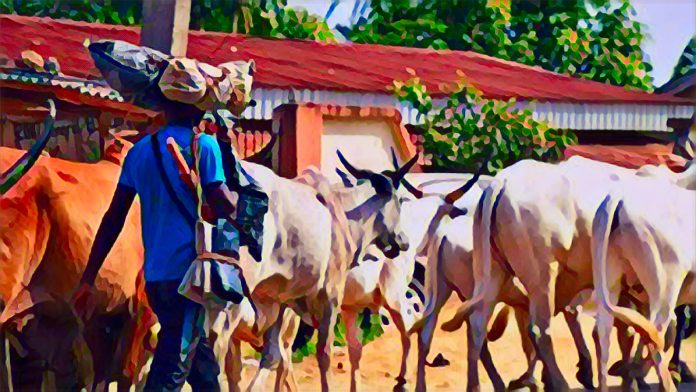Key points
-
Open grazing conflicts killed more than 2,800 people in five years.
-
Anti-open grazing laws exist but are rarely enforced.
-
Displacement hit 2.2 million people across Benue, Plateau and Nasarawa.
Conflicts linked to open grazing of cattle have claimed at least 2,800 lives in Nigeria over the past five years, according to reported cases and data compiled by Nextier’s Violent Conflict Database.
Between 2020 and 2024, the group recorded 359 incidents between herders and farmers, leaving 2,349 people dead.
In 2024 alone, 61 incidents caused 467 deaths. This year, Saturday Vanguard’s tally shows another 451 lives lost, with Benue, Plateau and Nasarawa bearing the brunt.
Experts say the figures are conservative since many clashes remain unreported.
The violence has displaced about 2.2 million people in Benue, Plateau and Nasarawa between 2019 and early 2025, worsening insecurity and food shortages.
Why anti-open grazing laws are failing
In response to rising violence, all 17 southern states and two northern states—Benue and Taraba—passed anti-open grazing laws between 2007 and 2022. Yet enforcement remains weak.
Police officers say they lack clear federal directives to implement the laws, leaving state governments powerless.
Local security committees set up to enforce restrictions often face pushback from senior police officers or armed herders.
Some herders are also backed by influential Nigerians, making enforcement politically sensitive.
Experts and lawmakers argue that without federal backing, adequate training and resources for security agencies, and stronger political will, the laws will continue to exist largely on paper.
Calls for stronger political will and lasting solutions
Groups such as Afenifere and the All Farmers Association of Nigeria warn that weak enforcement allows violence to persist.
Farmers complain of cattle destroying crops and communities living in fear of kidnappings linked to armed herders.
While the Miyetti Allah Cattle Breeders Association of Nigeria acknowledges the benefits of ranching, it says members cannot abandon open grazing overnight due to cost and cultural practices. Critics argue this stance delays urgently needed reforms.
Analysts say ranching, tighter security cooperation and genuine political will are critical to solving the crisis.
Until then, Nigeria’s open grazing conflicts will remain a flashpoint, costing lives, livelihoods and national stability.



